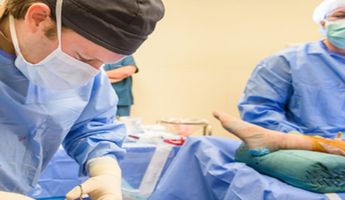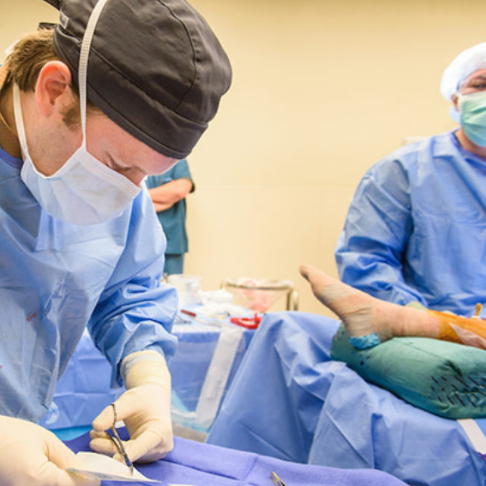Tendon Repair in Lausanne
Search and Compare the Best Clinics and Doctors at the Lowest Prices for Tendon Repair in Lausanne

Find the best clinics for Tendon Repair in Lausanne
No pricing info available
Russian Federation offers the best prices Worldwide
Price: $ 828
From 10 verified reviews
interprète ? Couyère, 24 January 2020
this morning in radiology, all very nice and very efficient I recommend 👍
From 21 verified reviews
Doriana RIVA, 10 September 2020
A huge thank you to the healthcare team who took care of me urgently on April 22, 2020. The welcome at the front desk, the anesthesia team, the assistants, the nurses in the operating room and the recovery room were so sweet and very attentive.I will never forget that time spent with you. Good luck to everyone, e.D. Riva
- Home
- Switzerland
- Lausanne
WHY US?
At Medijump, we're making medical easy. You can search, compare, discuss, and book your medical all in one place. We open the door to the best medical providers worldwide, saving you time and energy along the way, and it's all for FREE, no hidden fees, and no price markups guaranteed. So what are you waiting for?

Free

Best Price

Widest Selection

Risk-Free
What you need to know about Tendon Repair in Lausanne

Tendon repair is a surgical procedure to treat a torn or damaged tendon – the soft stretchy tissues that connect muscles to the bone and helps to protect joints from damage. The purpose of Tendon Repair is to restore normal movement to a joint as tendon injuries are very painful and can make it difficult to move. Tendon repair is mostly performed on people with a deep cut that severs a tendon, an injury, or tears due to rheumatoid arthritis, or an injury from contact sports.
What does a Tendon Repair Procedure Involve?
Tendon repair surgery can be performed under local, regional, or general anesthetic, depending on your medical history and the location of the affected tendon. The procedure starts by making an incision in the skin over the injured tendon, then any damaged tendon is removed and the ends of the torn tendon are sewed together. The final step is closing the incision with sutures and covering the area with sterile dressing or bandages.
How Long Should I Stay in Lausanne for a Tendon Repair Procedure?
Although tendon repairs are usually performed as an outpatient procedure (meaning you can leave the hospital on the same day of the surgery), you should aim to stay in Lausanne for 5 to 7 days. As you will need to attend follow-up hospital checkups where your surgeon will remove the stitches and monitor your healing
What's the Recovery Time for Tendon Repair Procedures in Lausanne?
The total period for recovery can take around 12 weeks, but you should rest for 6 weeks to aid a speedy recovery. Make sure to ask your doctor about the recovery timeline. Also, remember that you should avoid doing any exercises (including therapy exercises) until your surgeon allows you to do so.
What sort of Aftercare is Required for Tendon Repair Procedures in Lausanne?
Your surgeon will give you aftercare instructions, which may include wound care and dietary restrictions. For the first few days following the surgery, make sure to keep the affected area elevated to avoid swelling and pain. Your surgeon may also recommend physical therapy or occupational therapy exercises to regain your range of motion.
What's the Success Rate of Tendon Repair Procedures in Lausanne?
The sooner the procedure is carried out after injury, the higher the success rate. However, there are some minor side effects and risks associated with the procedure, including loss of joint use, re-tearing of the tendon, stiffness of the joint, scar tissue, as well as problems with anesthesia.
Are there Alternatives to Tendon Repair Procedures in Lausanne?
Physical therapy can be an alternative if you do not want to undergo surgery, but in some severe cases, you need both surgery and physical therapy to treat your damaged tendon effectively.
What Should You Expect Before and After the Procedure
Before a Tendon repair, your movement and mobility may be limited as it can be very painful for you to move a joint. After the surgery, you should slowly regain your range of motion. Once you have recovered fully, you may be able to move like you used to before the damage to your tendon.
Whilst the information presented here has been accurately sourced and verified by a medical professional for its accuracy, it is still advised to consult with your doctor before pursuing a medical treatment at one of the listed medical providers
No Time?
Tell us what you're looking for and we'll reachout to the top clinics all at once
Enquire Now

Popular Procedures in Lausanne
Prices Start From $1,376

Prices Start From $125

Prices Start From $2,050

Prices Start From $15

Recommended Medical Centers in Lausanne for Tendon Repair

- Interpreter services
- Translation service
- Religious facilities
- Medical records transfer
- Medical travel insurance
- Health insurance coordination
- TV in the room
- Safe in the room
- Phone in the room
- Private rooms for patients available

- Interpreter services
- Translation service
- Religious facilities
- Medical records transfer
- Medical travel insurance
- Health insurance coordination
- TV in the room
- Safe in the room
- Phone in the room
- Private rooms for patients available

- Interpreter services
- Translation service
- Religious facilities
- Medical records transfer
- Medical travel insurance
- Health insurance coordination
- TV in the room
- Safe in the room
- Phone in the room
- Private rooms for patients available

- Interpreter services
- Translation service
- Religious facilities
- Medical records transfer
- Medical travel insurance
- Health insurance coordination
- TV in the room
- Safe in the room
- Phone in the room
- Private rooms for patients available

- Interpreter services
- Translation service
- Religious facilities
- Medical records transfer
- Medical travel insurance
- Health insurance coordination
- TV in the room
- Safe in the room
- Phone in the room
- Private rooms for patients available

- Interpreter services
- Translation service
- Religious facilities
- Medical records transfer
- Medical travel insurance
- Health insurance coordination
- TV in the room
- Safe in the room
- Phone in the room
- Private rooms for patients available

- Interpreter services
- Translation service
- Religious facilities
- Medical records transfer
- Medical travel insurance
- Health insurance coordination
- TV in the room
- Safe in the room
- Phone in the room
- Private rooms for patients available

- Interpreter services
- Translation service
- Religious facilities
- Medical records transfer
- Medical travel insurance
- Health insurance coordination
- TV in the room
- Safe in the room
- Phone in the room
- Private rooms for patients available

- Interpreter services
- Translation service
- Religious facilities
- Medical records transfer
- Medical travel insurance
- Health insurance coordination
- TV in the room
- Safe in the room
- Phone in the room
- Private rooms for patients available

- Interpreter services
- Translation service
- Religious facilities
- Medical records transfer
- Medical travel insurance
- Health insurance coordination
- TV in the room
- Safe in the room
- Phone in the room
- Private rooms for patients available
Tendon Repair in and around Lausanne
Popular Searches
- Plastic Surgery in Thailand
- Dental Implants in Thailand
- Hair Transplant in Thailand
- Breast Augmentation Thailand
- Gastric Sleeve in Thailand
- Gender Reassignment Surgery in Thailand
- Laser Hair Removal in Bangkok
- Botox in Bangkok
- Dermatology in Bangkok
- Breast Augmentation in Bangkok
- Coolsculpting in Bangkok
- Veneers in Turkey
- Hair Transplant in Turkey
- Rhinoplasty in Turkey
- Stem Cell Therapy in Mexico
- Rhinoplasty in Mexico
- Liposuction in Mexico
- Coolsculpting in Tijuana
- Rhinoplasty in Korea
- Scar Removal in Korea
- Gastric Sleeve in Turkey
- Bone Marrow Transplant in India
- Invisalign in Malaysia
- Plastic Surgery in the Dominican Republic
- Tummy Tuck in the Dominican Republic
- Plastic and Cosmetic Surgery in Poland
- Rhinoplasty in Poland
- Hair Implant in Poland
- Dental Implants in Poland
- IVF in Turkey

